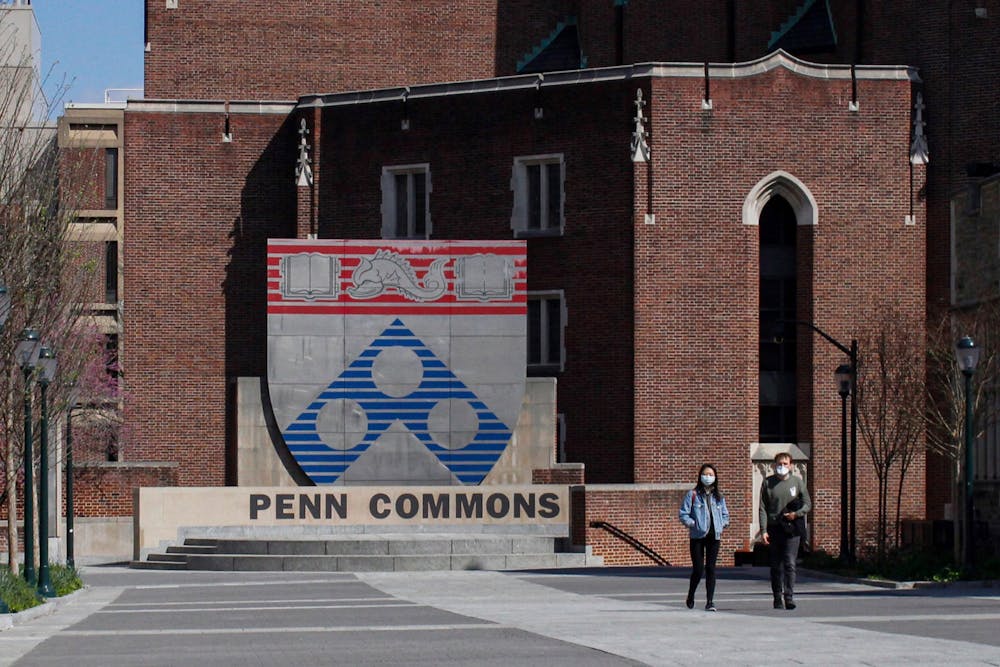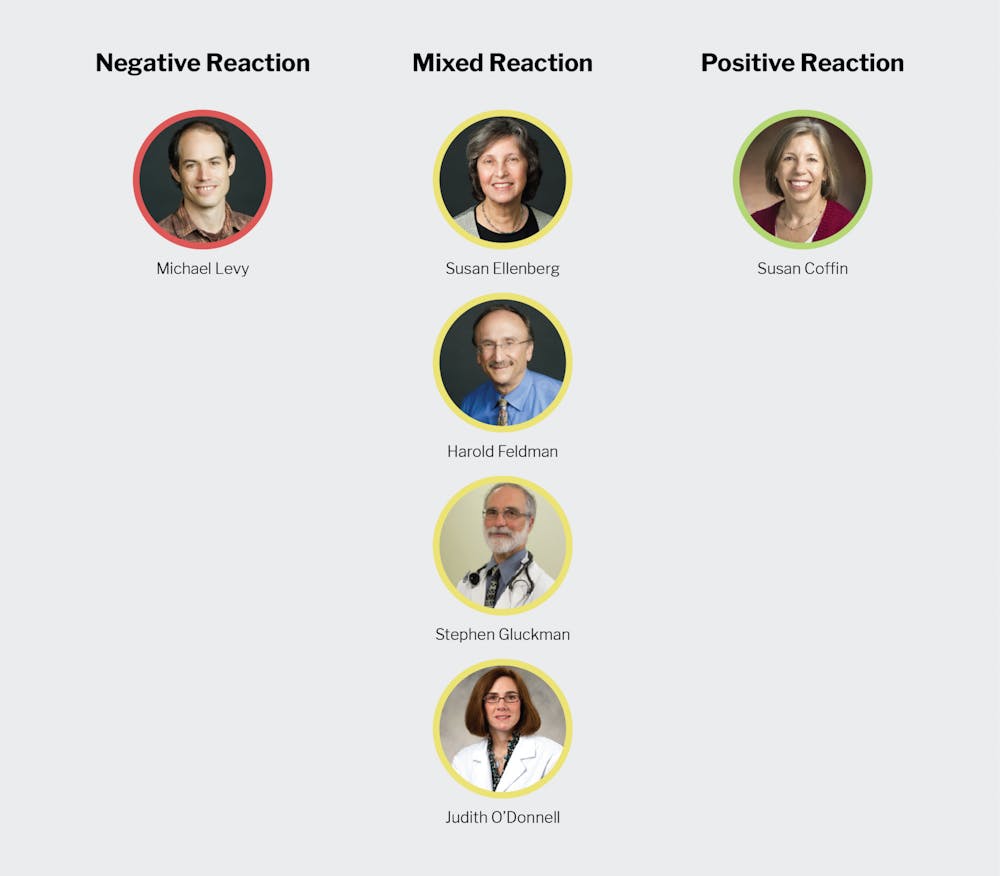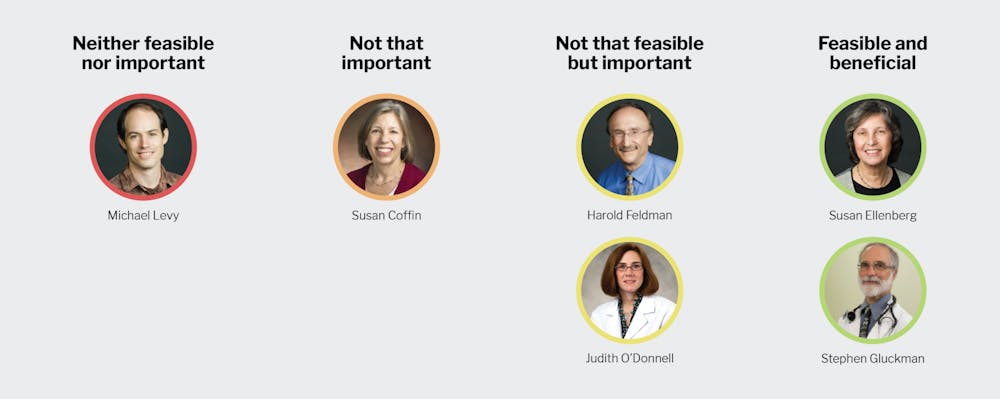
The Daily Pennsylvanian spoke with six experts in infectious diseases and epidemiology at Penn Medicine, the Hospital of the University of Pennsylvania, the Children’s Hospital of Pennsylvania, and Penn Presbyterian Medical Center, regarding their opinions on Penn’s fall 2020 plan.
Penn announced on June 25 that the fall semester will be conducted in a hybrid format, inviting all students back to campus with a number of campus health and safety requirements in place, including the Student Campus Compact, a series of expectations for student behavior on campus. Penn has also committed to testing all students for COVID-19 upon return to campus.
After asking six University health professionals questions ranging from the viability of safely bringing students to campus to the importance of testing requirements, the DP consolidated their responses to provide the most pertinent information for the Penn community.
From a health standpoint, what do you think of Penn’s plan to allow students to return and live on-campus?

Negative reaction
“I think whenever the 'one person to a room idea' came up in the meetings I was involved in, everyone laughed. You can't expect everyone to stay in their room. I think we all know [having students on campus] is a bad idea. We know it's a bad idea to bring students from all over the country.” — Dr. Michael Levy, associate professor of Biostatistics and Epidemiology at Penn Medicine
Mixed reaction
“The problem is nobody knows what is going to happen. Pennsylvania is on the border of not looking as good as it would like to look [with daily case counts], but it is also not at the point of Florida or Arizona. We obviously don’t want to become one of those states, but people are starting to question ‘How long can they live life this way?’” — Dr. Susan Ellenberg, professor of Biostatistics at the Hospital of the University of Pennsylvania
“The start of reopening is something we all embrace with trepidation. I think we need to be moving progressively to re-engaging in all sorts of aspects of our society, but we need to do so in a smart way.” — Dr. Harold Feldman, George S. Pepper Professor of Public Health and Preventive Medicine in Biostatistics and Epidemiology at Penn Medicine
“I think because [COVID-19] has been part of our lives for a while, and as long as the [daily case] numbers continue to look good [in Pennsylvania], I think it’s a reasonable risk. If you don’t [open the campus], you’re not going to do it for a long time until there is an effective vaccine.” — Dr. Stephen Gluckman, professor of Medicine at the Hospital of the University of Pennsylvania and Medical director of Penn Global Medicine
“I think that [an on-campus semester] has to be done carefully and thoughtfully and with a tremendous amount of planning and organization in order to maintain the general safety of the campus.” — Dr. Judith O’Donnell, director of the department of Infection Prevention and Control and section chief of the Division of Infectious Diseases at Penn Presbyterian Medical Center
Postive reaction
“I think it makes sense if you think that campus life, including in-person instruction, has value, and my personal opinion is that yes, it does. I think then the question becomes, ‘How do you do it safely?’ Now, like it or not, the student body are all adults and this is an opportunity to come together and participate in a social compact.” — Dr. Susan Coffin, Associate Chief in the Division of Infectious Diseases at the Children's Hospital of Philadelphia and Pediatrics professor at Penn Medicine
What do you think of Penn's plan to offer testing to all students upon return to campus?

Neither feasible nor important
“We cannot do that. I mean, testing capacity across the country can't keep up with symptomatic individuals. Penn has a certain testing capacity but the city needs that too. It becomes an ethical question, not an epidemiological one. And not one model that I've seen has said that testing everyone upon return to campus is an especially effective intervention. That wasn't informed by any of the discussions I was in, in fact, it was not recommended.” — Levy
Not that important
“When thinking about testing, it’s important to remember the limitations. It only answers one question: at this very moment, does the person who just had their nose swabbed have any viral RNA? It doesn’t say anything about what happened yesterday or what will go on tomorrow. It is an incomprehensive snapshot.” — Coffin
Not that feasible, but important
“The burden of testing really needs to be spread out so that there isn’t a strange mismatch of having local [Philadelphia] testing resources be depleted but the hometown where the person came from had plenty of tests, but they didn't bother getting tested and they thought the school would test them. But I think we need to be resolute in making sure people are negative before they are brought into the campus community.” — Feldman
“Unfortunately, [the Penn Medicine system] has nowhere near the testing capacity that we would need. We don't even have the best types of tests right now because what we truly need is a rapid point of care test. But there's going to have to be testing for people as they return to campus and then also frequency testing after that. I don't know what the right frequency is for routine testing of asymptomatic people is though, because nobody knows the answer to that yet.” — O’Donnell
Feasible and beneficial
“It would be enormously informative and beneficial to have a large group of young people who are being tested. For those who test positive, obviously they would be quarantined, but we could also follow them. One thing we don’t know enough about is how many people actually have symptoms. So by having this group all get tested, we would be able to get a lot of important information.” — Ellenberg
“At Penn, we have a fair amount of other testing stuff now, so unless there becomes a shortage, I think it's reasonable to test everybody when they come back to campus, but not daily. So I think it’s definitely reasonable.” — Gluckman
The Daily Pennsylvanian is an independent, student-run newspaper. Please consider making a donation to support the coverage that shapes the University. Your generosity ensures a future of strong journalism at Penn.
Donate







